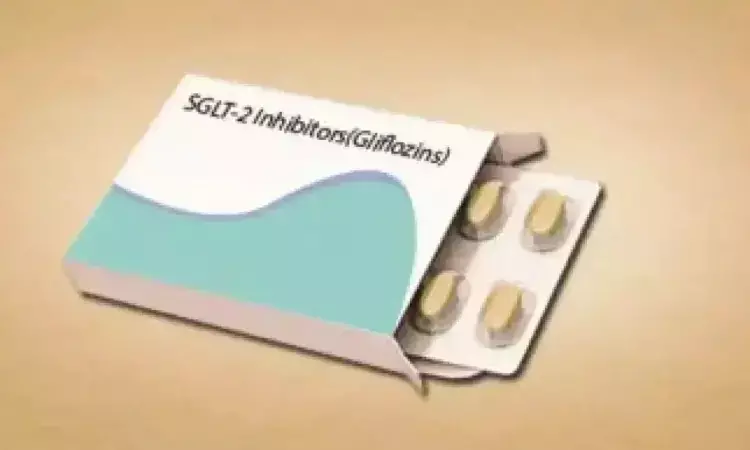- Home
- Medical news & Guidelines
- Anesthesiology
- Cardiology and CTVS
- Critical Care
- Dentistry
- Dermatology
- Diabetes and Endocrinology
- ENT
- Gastroenterology
- Medicine
- Nephrology
- Neurology
- Obstretics-Gynaecology
- Oncology
- Ophthalmology
- Orthopaedics
- Pediatrics-Neonatology
- Psychiatry
- Pulmonology
- Radiology
- Surgery
- Urology
- Laboratory Medicine
- Diet
- Nursing
- Paramedical
- Physiotherapy
- Health news
- Fact Check
- Bone Health Fact Check
- Brain Health Fact Check
- Cancer Related Fact Check
- Child Care Fact Check
- Dental and oral health fact check
- Diabetes and metabolic health fact check
- Diet and Nutrition Fact Check
- Eye and ENT Care Fact Check
- Fitness fact check
- Gut health fact check
- Heart health fact check
- Kidney health fact check
- Medical education fact check
- Men's health fact check
- Respiratory fact check
- Skin and hair care fact check
- Vaccine and Immunization fact check
- Women's health fact check
- AYUSH
- State News
- Andaman and Nicobar Islands
- Andhra Pradesh
- Arunachal Pradesh
- Assam
- Bihar
- Chandigarh
- Chattisgarh
- Dadra and Nagar Haveli
- Daman and Diu
- Delhi
- Goa
- Gujarat
- Haryana
- Himachal Pradesh
- Jammu & Kashmir
- Jharkhand
- Karnataka
- Kerala
- Ladakh
- Lakshadweep
- Madhya Pradesh
- Maharashtra
- Manipur
- Meghalaya
- Mizoram
- Nagaland
- Odisha
- Puducherry
- Punjab
- Rajasthan
- Sikkim
- Tamil Nadu
- Telangana
- Tripura
- Uttar Pradesh
- Uttrakhand
- West Bengal
- Medical Education
- Industry
MR Study sheds light on anti-inflammatory effects of SGLT-2 inhibitors and their beneficial impact in reducing HF risk

China: A two-sample Mendelian randomization (MR) study provides genetic evidence supporting the anti-inflammatory effects of sodium-glucose cotransporter 2 (SGLT-2) inhibitors and their beneficial impact in reducing heart failure (HF) risk.
CXCL10 emerged as a potential mediator, offering a novel intervention pathway for the treatment of heart failure. The findings were published online in Cardiovascular Diabetology on April 2, 2024.
"Our findings suggest that SGLT-2 inhibitors may reduce HF risk by modulating inflammatory biomarkers, with CXCL10 potentially playing a mediating role—accounting for approximately 18% of the association between SGLT-2 inhibition and HF risk," the researchers wrote.
SGLT-2 inhibitors represent a novel class of antihyperglycemic drugs that act by SGLT-2 inhibition in the renal tubules, thereby reducing the reabsorption of filtered glucose and enhancing glycosuria effects. Further research has clarified SGLT-2 inhibitors' role beyond blood glucose reduction, especially highlighting their potential in HF management. However, the precise mechanisms involved remain to be fully delineated. Evidence points to their potential anti-inflammatory pathway in reducing the risk of HF.
To fill this knowledge gap, Hongbing Yan, Fuwai Hospital Chinese Academy of Medical Sciences, Shenzhen, China, and colleagues employed a two-sample, two-step MR approach to assess the correlation between SGLT-2 inhibition and HF, along with the mediating effects of inflammatory biomarkers in this relationship.
MR is an analytical methodology that leverages single nucleotide polymorphisms as instrumental variables to infer potential causal inferences between exposures and outcomes within observational data frameworks. Using datasets from the Genotype-Tissue Expression project and the eQTLGen consortium, genetic variants correlated with the expression of the SLC5A2 gene and glycated hemoglobin levels (HbA1c) were selected.
Using datasets, the researchers obtained the Genome-wide association study (GWAS) data for 92 inflammatory biomarkers from two datasets comprising 14,824 and 575,531 individuals of European ancestry, respectively.
GWAS data for heart failure was derived from a meta-analysis that combined 26 cohorts, including 47,309 HF cases and 930,014 controls. Odds ratios (ORs) for HF were calculated per 1 unit change of HbA1c.
The study led to the following findings:
· Genetically predicted SGLT-2 inhibition was associated with a reduced risk of heart failure (OR 0.42).
· Of the 92 inflammatory biomarkers studied, two inflammatory biomarkers (C-X-C motif chemokine ligand 10 [CXCL10] and leukemia inhibitory factor) were associated with SGLT-2 inhibition and HF.
· Multivariable MR analysis revealed that CXCL10 was the primary inflammatory cytokine related to HF (MIP = 0.861, MACE = 0.224).
·CXCL10 by 17.85% of the total effect mediated the effect of SGLT-2 inhibition on HF.
In conclusion, the study provides genetic support for the relationship between SGLT-2 inhibition, inflammatory biomarkers, and heart failure. Specifically, CXCL10 appears to mediate the effect of SGLT-2 inhibitors on HF.
Reference:
Guo, W., Zhao, L., Huang, W. et al. Sodium-glucose cotransporter 2 inhibitors, inflammation, and heart failure: a two-sample Mendelian randomization study. Cardiovasc Diabetol 23, 118 (2024). https://doi.org/10.1186/s12933-024-02210-5
Dr Kamal Kant Kohli-MBBS, DTCD- a chest specialist with more than 30 years of practice and a flair for writing clinical articles, Dr Kamal Kant Kohli joined Medical Dialogues as a Chief Editor of Medical News. Besides writing articles, as an editor, he proofreads and verifies all the medical content published on Medical Dialogues including those coming from journals, studies,medical conferences,guidelines etc. Email: drkohli@medicaldialogues.in. Contact no. 011-43720751


